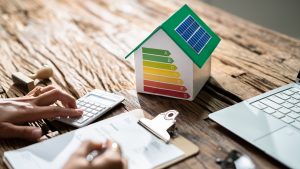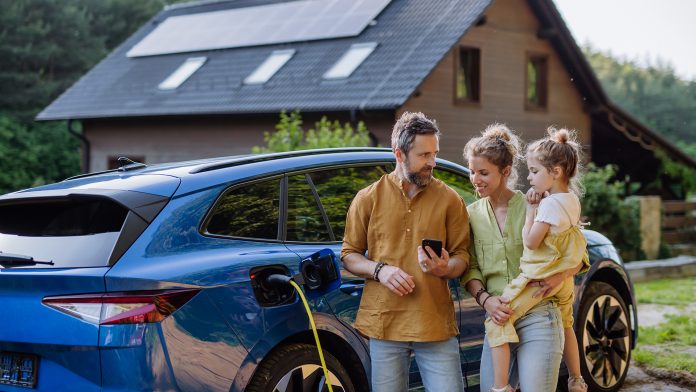A new study has found that promoting low-carbon activities will be more successful in societies where everyone has the capacity to make changes.
In a new report, researchers argue that tackling inequality is vital for the clean energy transition due to constraints on those who can adopt low-carbon behaviours.
Changes across society are needed if climate change is to be mitigated. Although wealthy people have larger carbon footprints, they also have the means to reduce their carbon footprint more easily than those on lower incomes.
There is currently a lack of political recognition of the barriers that can make it difficult for people to adopt low-carbon behaviours.
The new report, ‘Tackling inequality is essential for behaviour change for net zero,’ suggests that policymakers should provide equal opportunities for low-carbon behaviours across all income brackets.
Carbon footprint reduction is restricted by low-income
The report defines inequality in the following ways: wealth and income, free time, access to low-carbon options, and political influence.
Dr Charlotte Kukowski, a postdoctoral researcher in the University of Cambridge Departments of Psychology and Zoology, and the first author of the report, said: “It’s increasingly acknowledged that there’s inequality in terms of who causes climate change and who suffers the consequences, but there’s far less attention being paid to the effect of inequality in changing behaviours to reduce carbon emissions.
“People on lower incomes can be more restricted in the things they can do to help reduce their carbon footprint, in terms of the cost and time associated with doing things differently.”

Ways that inequalities affect the switch to low-carbon activities
The study found that inequalities restrict people’s capacity to switch to lower-carbon behaviours in a number of ways. These include:
Insulating a house in the UK
Many houses are badly insulated and require more energy to heat. In the UK, insulating a house can be costly, and government subsidies are generally only available for homeowners.
The team argue that the government should implement schemes that make it feasible for people with a lower income to reduce the carbon emissions of their homes.
Meat-free cooking
Eating more plant-based foods instead of meat and animal-derived products is one of the most effective changes an individual can make to reduce their carbon footprint.

However, plant-based alternatives tend to be more expensive than the animal products that they are replacing.
Buying an electric car or bike
There is a significant upfront cost when buying an electric car or an electric bike. This excludes those who aren’t in permanent employment who can’t benefit from tax breaks or financing available through employer schemes.
Other low-carbon transport options, such as using public transport, are unfeasible for many due to poor services.
“If you have more money, you’re likely to cause more carbon emissions, but you’re also more likely to have a greater ability to change the things you do and reduce those emissions,” said Dr Emma Garnett, a postdoctoral researcher at the University of Oxford and second author of the report.
She added: “Interventions targeting high-emitting individuals are urgently needed, but also many areas where there are lower-carbon choices – like food and transport – need everyone to be involved.”
Current campaigns focus on providing information
Now, campaigns that promote low-carbon activities provide information to help people understand climate-related issues. However, there are still barriers to the uptake of low-carbon activities.
To overcome barriers caused by inequalities, a range of policy interventions need to be implemented. These could include bus and bike lanes and pedestrian-friendly routes, progressive taxation rates on wealth and income, and employer-subsidised low-carbon meal options.









